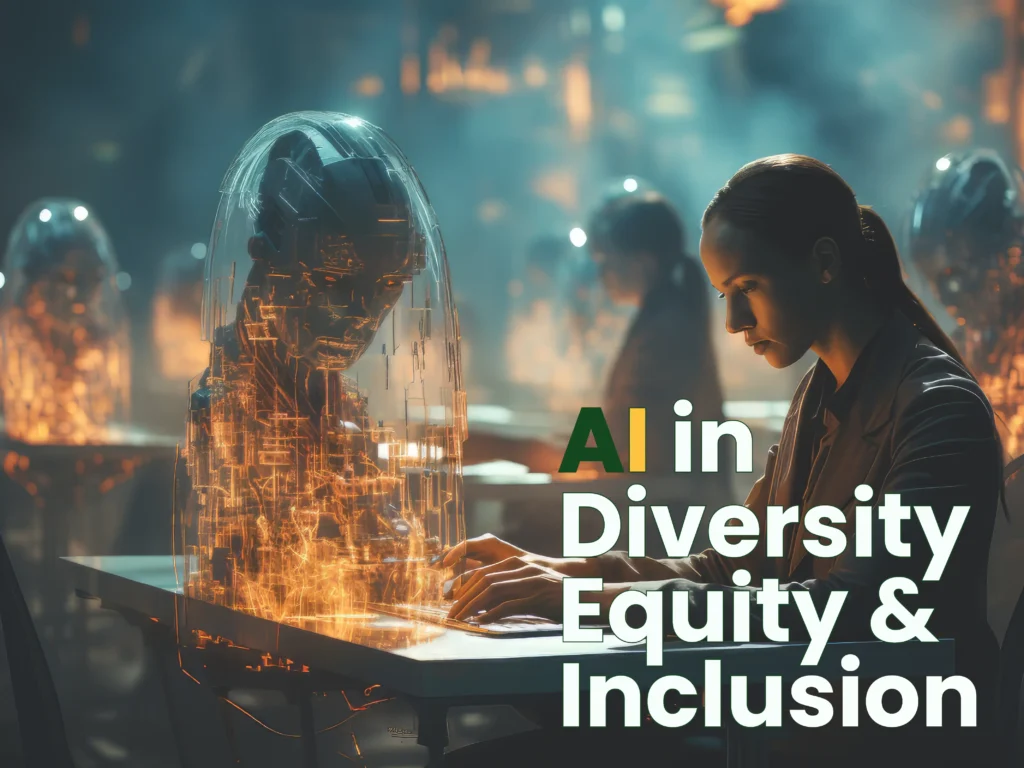
AI in Diversity Equity and Inclusion
“AI is the first technology in history that can take power away from us,”
- Yuval Noah Harari
AI has not spared any aspect of our lives rather it has enhanced our lives to the extent that it has replaced humans. Or has it facilitated our progress? The debate goes on!!
The talent and expertise that made humans indispensable in particular fields has been challenged by AI. From curating ideas and content to analysing situations and deriving conclusive results has now become easier. In this scenario how does it change our approach to Human Resource and particularly Diversity Equity and Inclusion (DEI)?
- Hiring without bias:
Humans are not bereft of bias, and this reflects while selecting the right candidate for a team. When AI driven tools are used to choose candidates, it reduces the unconscious bias only focusing on assessments based on data. This leads to a substantial increase in workforce diversity. Let’s take the example of Tech Mahindra where there has been an increase in diversity by 25% after it has begun using the AI recruitment platform. AI driven recruitment tools help combating biases by removing personal information and using data driven criteria to choose the right candidate. So, resumes are screened as per skills, talent, knowledge and experience. Not on the basis of photos, or names thus, ensuring unbiased selection process.
- Bias in decision making
Unconscious biases impact decision making processes. AI technologies minimise human subjectivity. Where human decisions can be fogged by biases, AI introduces objectivity in decision making frameworks.
Algorithms analyse data to decode the bias patterns and provide feedback that helps in objective decision making leading to more informed choices.
- Personalised training:
AI generates training content and programs that are tailormade to individual needs. It analyses learning abilities and styles, based on which personalised content is created, ensuring that team members coming from different backgrounds get equal opportunity to learn and apply it on job. This certainly improves the learning outcomes.
- Inclusive work place:
HR teams can study the impact of diversity initiatives through AI tools. They supplement the process by providing detailed insights into diversity metrics. The culture in companies becomes more inclusive when employee feedback is analysed after considering the bias, ensuring that the diversity initiatives undertaken by companies are accepted by the workforce.
- Employee engagement:
AI analyses employee feedback to know the scope for improvement to address biases issues related to DEI. AI tools can identify the challenges an employee faces at work place. This encourages taking proactive steps to help team members to combat challenges. They also identify what is lacking in the DEI efforts by giving insights to create effective initiatives with regards to a particular workforce.
The impact of AI while combating bias depends on various factors like the algorithm, and data quality.
In the midst of the environment that is rapidly engaging AI tools, one needs to be aware of its challenges as well. These aspects will be discussed in our consecutive post. Keep reading our interesting blog posts to know more about the changing work culture and business landscape.
Get in touch with our team Partner – Professa today to take informed decision pertaining DEI.
